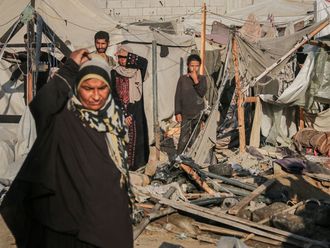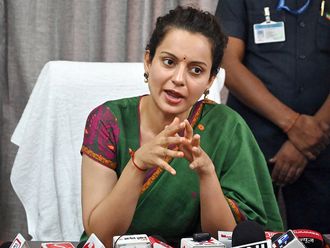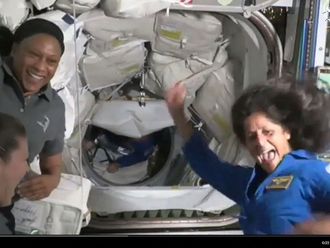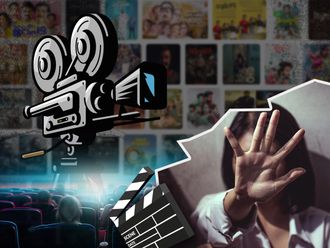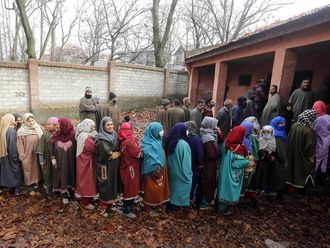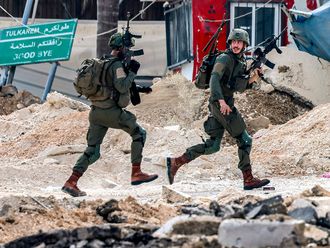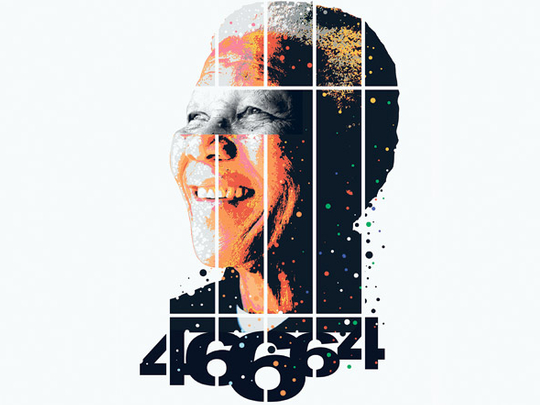
Twenty years ago today, Nelson Mandela walked out of a South African jail after 27 years in prison. It was extraordinary that the democratic movement could have come so far, given the power of the apartheid government. But what happened next, as the old government gave way peacefully to the new democratically elected government, made the story of South Africa a permanent inspiration to the rest of mankind. South Africa proved that change could happen.
But the inspiration of South Africa has failed to translate to the Middle East, where 20 years later violence is still unrelenting, Israeli occupation continues with no respite, and there is no sense that a breakthrough can be found. The key difference between the Palestinian and anti-apartheid causes is how the Palestinians have failed to establish their case as a global moral issue, while the world united around the anti-apartheid cause to make it their own.
This difference is shocking. Both causes were and are fighting occupation, suppression, and seeking to reverse oppression based on race and religion. But the Palestinian struggle is seen as one people's fight for freedom with little global message contained in that mission, while the anti-apartheid movement was seen as "one of the great moral struggles that captured the world's imagination," as Mandala said.
This important difference was examined by the great Palestinian thinker, Edward Said, when he noted that the anti-apartheid movement had worked hard on the cultural struggle in the West, which the Palestinians had not. And how the Palestinian message had been muddled, and then blurred by "untimely acts of terror", which contrasted with Israeli skill in building their moral high ground in the West, as well as exploiting guilt over the Holocaust.
But Said found the vital difference was not in the messaging, but in the message itself. As he eloquently summed it up "what we [the Palestinians] never concentrated on enough was that to counteract Zionist exclusivism, we would have to provide a solution that would, in Mandela's phrase, assert our common humanity as Jews and Arabs".
Mandela's great achievement was to reach out to his former enemies and make them part of the new South Africa, without abandoning any of his principles. It was Mandela who put on a Springbok rugby jersey and converted support for the rugby team from its traditionally white and apartheid base into a national cause.
It was also Mandela who launched the Truth and Reconciliation Commission. This extraordinary venture was about telling all and seeking public forgiveness. For years it heard harrowing evidence from oppressors and victims, with the intention that the horrors of the past should be aired completely, and then the country could absorb the full truth and seek understanding. This process was naturally controversial, and had great successes and failures, but its underlying spirit was to find reconciliation and move on, and not to launch a legal witchhunt, which would force anyone involved in the previous regime to distance themselves from the new South Africa. The Commission was about re-building a nation from its sundered parts.
Follow his example
This is not happening in the Middle East. It is hard to imagine the influential Palestinian leader Marwan Barghouti emerging from an Israeli prison and putting on a white and blue shirt to cheer for the Israeli football team, so that both Israelis and Palestinians can share in each others' successes, taking pride in building their future together as equal and trusted neighbours. There is no sense that either the Palestinians or Israelis are looking to share in a soaring vision of a common future, such as that which Mandela offered both apartheid supporters and ANC supporters in South Africa.
Of course, Israel is exploiting this situation to its great advantage. Its brutal occupation, the decades of illegal land grabs, the endless ethnic cleansing as its forces whole populations to shift, are greatly to its advantage. It wants to impose its authority on the region, and it sees no point in finding any other way. The Israeli system simply does not recognise any other solution other than oppression and occupation.
The challenge for the Palestinians is how to expose Zionism for the vicious and bankrupt system that it is. Mandela fought and defeated a regime that was more powerful than the Israelis. His lesson is to look beyond the immediate struggle and find a moral base. The Palestinians need to plan for a time when a Palestinian leader might be dealing with the aftermath of a massacre, and will paraphrase Mandela's address to the nation after the assassination of Chris Hani, the chief of staff of the ANC's armed forces, when South Africa was on the brink of civil war. He said: "Tonight I am reaching out to every single South African, black and white, from the very depths of my being. Now is the time for all South Africans to stand together against those who, from any quarter, wish to destroy what Chris Hani gave his life for — the freedom of all of us."


